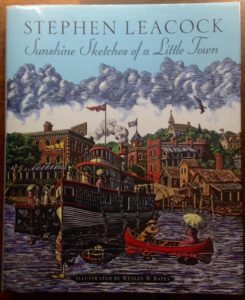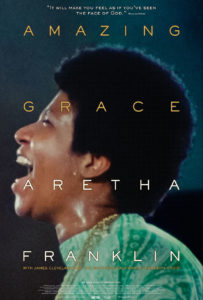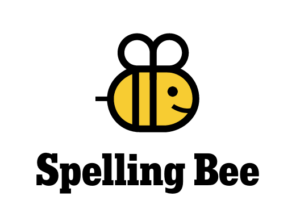A Passion for the Planet
by Geoffrey Hudson
[Online Resource]

view/request
This live performance of Geoffrey Hudson A Passion for the Planet was recorded in Northampton, at Smith College’s Sweeney hall, and performed by the Illuminati Vocal Arts Ensemble with the Hampshire Young People’s Chorus and a 12-piece orchestra. A Passion for the Planet is an oratorio on the subject of climate change with words drawn from a number of sources. The work is moving and important, and the performance is exceptional. We can’t hear live music right now, but I am grateful to be able to experience this now, in my own home. And I take comfort in the words of Geoffrey Hudson, the composer, which seem applicable to so many of the crises we face:
Singing and listening to music won’t make the climate crisis go away. But perhaps, by forming an emotional connection with the topic, it can help us confront the stark realities. And when we see those realities—and truly take them in—maybe then, together, nourished by hope, we can work together to find a way forward.” – Geoffrey Hudson
Reviewed by Ben
Tagged: Classical music, Music, Online Video
Sunshine Sketches of a Little Town
by Stephen Leacock (selections read live in Burnaby, BC)
[Online Resource]

view/request
Stephen Leacock (1869 – 1944) was an internationally popular Canadian humorist, teacher, lecturer, and author of more than 30 books of lighthearted sketches and essays. His wit is laugh-out-loud funny as it pokes fun at small-town life and characters of the early 20th century. I found these stories reminiscent of Mark Twain and Garrison Keillor, with a uniquely Canadian point of view.
These two stories were performed by librarians from Burnaby Public Library on Sunday June 16th 2013 at Burnaby Village, a living history museum near Vancouver. It’s directed for maximum dramatic and humorous effect (think Selected Shorts) with interludes of ragtime piano. Links follow.
Introduction with historical photos: https://www.youtube.com/watch?v=Fn_SGEpF1lk
Audio of the stories:
– The Hostelry of Mr. Smith
– The Marine Excursion of the Knights of Pythias
Reviewed by Faith
Amazing Grace
by Sydney Pollack
[Online Resource]

view/request
I missed this film when it was showing at Amherst Cinema in the Before Times, so I was very excited to find it on Hulu. [It’s available on a variety of streaming services.] After a long, troubled production history, this film, which documents Aretha Franklin’s 1972 recording of her live gospel album, also called Amazing Grace. She recorded the album over two nights at the New Temple Missionary Baptist Church in Los Angeles with her own band as well as the Southern California Community Choir. All of this is just preamble to say it’s wall-to-wall heavy hitters! Feast your eyes on the choir’s costumes, the bands’ suits, the reactions of the audience, the animated choir direction from Alexander Hamilton, and, of course, feast your ears on the incredible music that is sincere, expert, and no-nonsense all at once.
Reviewed by Heather
Tagged: Documentary, Music, Online Video

view/request
On March 21, 2020, Sandi Toksvig posted a video on a new YouTube, Vox Tox. It opens with the calming sound of a slow piano rag and a view of Sandi Toksvig in a rocking chair, a book in her lap, a dog at her feet, a fireplace to her side, and bookcases full of books behind. The camera pans over some of Sandi’s books before cutting back to Sandi, who looks into the camera and begins, “Hello there. Come have a sit down.” She continues:
You know we’re in strange times and I do know that there are some people are feeling a tad isolated, so I thought we could just have a bit of a chat. When I’m at home, I’ll be honest with you, I’m quite quiet, and a bit private, but I would like to invite you into my favorite room in our house: it’s one, as you can see, with all the books. When things are taking a bit of a low turn, which they do for everybody at some point, this is the place I come to find a bit of calm. I think we all need to find the positive in this enforced separation from the world and the bit I’m finding is how lovely to have the time to dip in and out of some ancient volume I haven’t looked at for ages. I struggled a great deal with loneliness when I was a child and it was always books which kept me company.
Vox Tox is “a daily amble through the library of Sandi Toksvig”. It’s also a wonderful amble through the mind of Sandi Toksvig, whose interests are wide ranging. The bulk of each episode, which is just under ten minutes long, consist of various historical stories with an emphasis on the stories of women, and no fear of digression. Sandi’s style is wonderfully conversational, and her manner wonderfully calming, like a Mr. Rodgers for gown ups. There has been a new Vox Tox each day, and I highly recommend subscribing to the channel.
Reviewed by Ben
Tagged: England, History, Online Video
Spelling Bee
by The New York Times
[Online Resource]

view/request
Like most librarians, I love words and games that involve language. This new one from the New York Times challenges you to come up with as many words as you can using just the 7 letters they provide. You can play it in fits and starts and it’ll track your progress throughout the day, making it very user-friendly during this strange, interruption-filled and routine-free time we’re currently living in. And lest you become too impressed with yourself, Spelling Bee has a rating system, from “Beginner” to “Genius”, to put you in your place.
Reviewed by Sarah
Tagged: Game
Invisibilia
by National Public Radio
[Online Resource]

view/request
Bernie Krause was a successful musician as a young man, playing with rock stars like Jim Morrison and George Harrison in the 1960s and ’70s. But then one day, Bernie heard a sound unlike anything he’d ever encountered and it completely overtook his life. He quit the music business to pursue it and has spent the last 50 years following it all over the earth.
If this description of a recent episode intrigues you, you will want to check out a podcast called Invisibilia. Produced by National Public Radio, Invisibilia explores the underlying forces that influence our behavior, ideas, and assumptions. Topics are wide-ranging and are told in an engaging and narrative fashion. One recent episode discussed a city councilor candidate who insists he is black, while his opponent accuses him of pretending to be black. The podcast asks “If race is simply a social construct and not a biological reality, how do we determine someone’s race? And who gets to decide?”
Reviewed by Rachael
Tagged: Podcast
Ian’s Shoelace Site
by Ian Fieggen
[Online Resource]

view/request
Sometimes its nice to dive into a seemingly trivial subject and learn what there is to learn. Shoelaces for example. We tie and untie them everyday, but what do we know about them? For most folks, the answer is not much. What is there to know about them? A fair amount, it turns out, and Ian Fieggen has provide a website (Ian’s Shoelace Site) that answers the questions you didn’t think to ask. The deepest and richest sections are, without a doubt, the sections on shoelace tying and shoe lacing. You can learn sixty-two different ways to lace shoes and the comparative advantages and disadvantages of each. And you can learn twenty different ways to tie your laces. Fieggen’s instructions are clear and the amount of detailed information he includes for each method is impressive. This is definitely the site to go to if you have a question about shoe laces, but it also highly recommended for anyone who likes to learn about the little things around us.
Reviewed by Ben
Online Etymology Dictionary
by Douglas Harper
[Online Resource]

view/request
Dan Harper’s Online Etymology Dictionary is one of those reference sources that is both useful and a pleasure to use. It’s primary content is, of course, dictionary entries for English words with a focus on their history. For example we will learn that the word “pet” is of unknown origin and meant “a tamed animal” until about the 16th century when it gained the meanings “animal kept as a favorite” and “indulged child”. By the 1620s it was in use as a verb meaning “to treat as a pet”, but it didn’t gain its meaning of “to stroke” until 1818! The entries in Harper’s dictionary are concise and thoughtful. Sources are rarely given, which limits its use for scholarship, but the brevity achieved makes in perfect for quick reference and pleasure reading.
In addition to the dictionary entries, the website also includes articles on various related topics, most recently Language in a Time of Corona, which digresses on themes suggested by the history of the various words in common use, including: “crisis” (which curiously evolved from a word meaning “sieve”), “epidemic” (a noun with an adjective’s ending), “virus” (a word that predates it’s current meaning by many centuries), “quarantine” (which originally referred to policy of isolating a ship for forty days), and many others.
Reviewed by Ben
No Such Thing as a Fish
by James Harkin, Andrew Hunter Murray, Anna Ptaszynski and Dan Schreiber,
[Online Resource]

view/request
Way back in 2003 Stephen Fry began hosting the delightful comedy trivia quiz show QI. The most visible stars of that show were the host, Stephen Fry, and the many witty panelists who joined him each week. But the hidden stars of the show were the researches who provided Stephen with a seemingly endless supply of “quite interesting” things to talk about. Those researchers quickly became know as the QI Elves, and since 2014 four of them, James Harkin, Andrew Hunter Murray, Anna Ptaszynski and Dan Schreiber, have hosted a weekly podcast crammed full of quite interesting facts, speculations, and banter.
No Such Thing as a Fish is wonderfully entertaining. Each of the four hosts picks a favorite fact of the week, which might sound like a recipe for a rather short podcast, but each host also comes prepared with a list of their favorite facts on the topic of their cohost’s facts. That would make for a minimum of 12 facts, and most episodes have far more. A recent episode included information on ancient Roman toilets, paint colors in Pompeii, flag burning, the origin of the word the word “prat”, and what we do and do not know about human intestinal length. All the while we are treated to jokes and puns and humorous anecdotes.
Most episodes of Fish are between 40 minutes and an hour long, and the episodes can be enjoyed in any order. Some listeners may want to seek out the episodes with special guests such as Stephen Fry, Cariad Lloyd, and John Hodgman. (The latter is, I must say, perfectly suited for the show.)
Reviewed by Ben
Tagged: Comedy, Podcast, Trivia
Bach’s Chaconne on nyckelharpa
by performed by Torbjörn Näsbom
[Online Resource]

view/request
In these times of isolation and anxiety, here’s something gorgeous and sublime to help you reconnect with joy and remind everybody why the arts matter. Torbjörn Näsbom connects two of my favorite musical obsessions: the nyckelharpa and J.S. Bach. The nyckelharpa is a traditional Swedish instrument that has been played, in one form or another as it evolved, for more than 600 years. It’s used mostly for Swedish folk music, which I could do a dozen staff picks on, but many musicians are playing other repertoire on it. Listen and enjoy 13 minutes of 16-string deliciousness.
There’s more Bach and traditional Swedish nyckelharpa tunes on Torbjörn’s YouTube channel. It’s a delight from beginning to end (and I hope it never ends).
For information in English about the nyckelharpa and its musical traditions, visit The American Nyckelharpa Association.
Reviewed by Faith
Tagged: Music, Online Video
Stuff You Should Know
by Josh Clark and Charles W.
[Online Resource]

view/request
It can be a challenge to find a podcast that is very educational and informative, and at the same time is really funny. It can also be a challenge to find a podcast that appeals to the older and younger generations. Stuff You Should Know is a free podcast that fits the bill.
The podcast is hosted two good friends, hosted by Josh Clark and Charles W. “Chuck” Bryant, both writers at HowStuffWorks. Each adds their own charming, clever, and sometimes serious take on a wide variety of issues. Thousands of episodes are available on this weekly podcast that started in 2008.
Check out this sampling of topics from 2017:
- How Dictators Work
- Are Artificial Sweeteners Really Bad for You?
- How Pacifism Works (and could it?)
- The Black Panther Party
- Pain Scales – Yeeow!
- Why Isn’t the US on the Metric System?
- How Foreign Accent Syndrome Works
- Is A Head Transplant a Real Thing?
Most of the podcasts are an hour, but Chuck and Josh offer short segments as well. Check it out On iHeartRadio or wherever you go for Podcasts. You’ll have a lot more fun on your exercycle and even learn a few things.
Reviewed by Rachael
Tagged: Educational, Podcast












